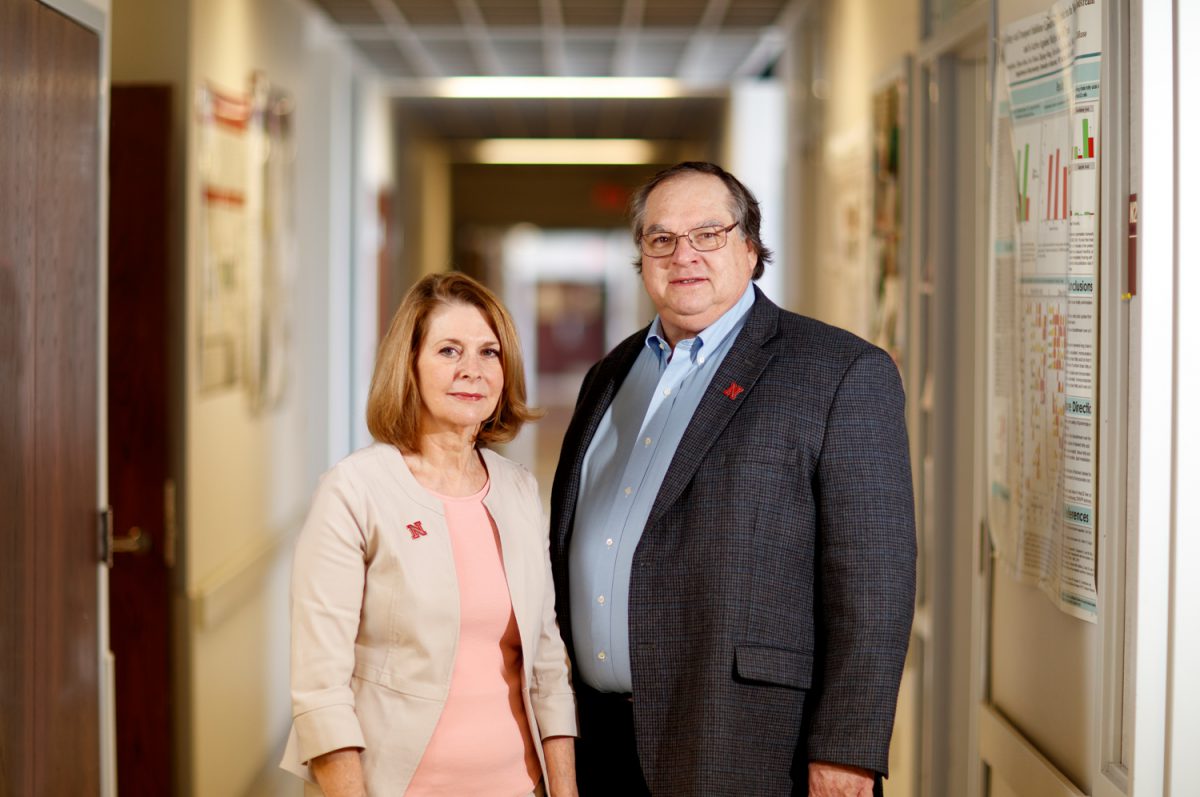Unraveling Biomolecular Communication

As with any successful team effort, the human body’s cells must communicate effectively to function properly. Miscommunication within or between cells leads to complex diseases such as cancer, diabetes and chronic liver disease.
The university created the Nebraska Center for Integrated Biomolecular Communication, or NCIBC, to better understand how cells communicate and the role miscommunication plays in diseases.
The university received $11.3 million from the National Institutes of Health’s Centers of Biomedical Research Excellence program to establish the center. The COBRE program funds health-related research and fosters faculty development and research infrastructure.

The center promotes interdisciplinary research collaborations, merging new techniques with investigating disease pathways that arise from miscommunication at the molecular level.
“It’s basic research, but this is where the therapies of the future are going to come from,” said center director James Takacs, Charles J. Mach University Professor of Chemistry. “An interdisciplinary team working together will bring a unique perspective to complex diseases.”
The center fosters a systems approach, which combines research by chemists, biochemists, engineers and bioinformaticists and includes University of Nebraska Medical Center faculty.
“It’s basic research, but this is where the therapies of the future are going to come from.”
One research collaboration, for example, models communication pathways between microorganisms in the gut. Another studies the interactions involved in liver disease progression.
The center also mentors young faculty, providing funds and advice to help them establish biomedical research programs and compete for independent funding. Expediting new faculty members’ transition into independent careers increases the university’s overall research capability and competitiveness.

The center is developing core facilities to complement existing university resources. Staff work with the Holland Computing Center and Center for Biotechnology to help faculty use and store big data.
Center researchers also are developing connections with the Nebraska Food for Health Center and the Nebraska Center for the Prevention of Obesity Diseases through Dietary Molecules to share resources and strengthen collaborations.
This is the university’s fourth NIH Center of Biomedical Research Excellence.
“Those centers have helped build infrastructure and propelled the careers of young scientists in specific areas of biomedical research. We plan to build on those past successes,” said co-director Concetta DiRusso, George W. Holmes University Professor of Biochemistry and interim associate vice chancellor for research and creative activity.